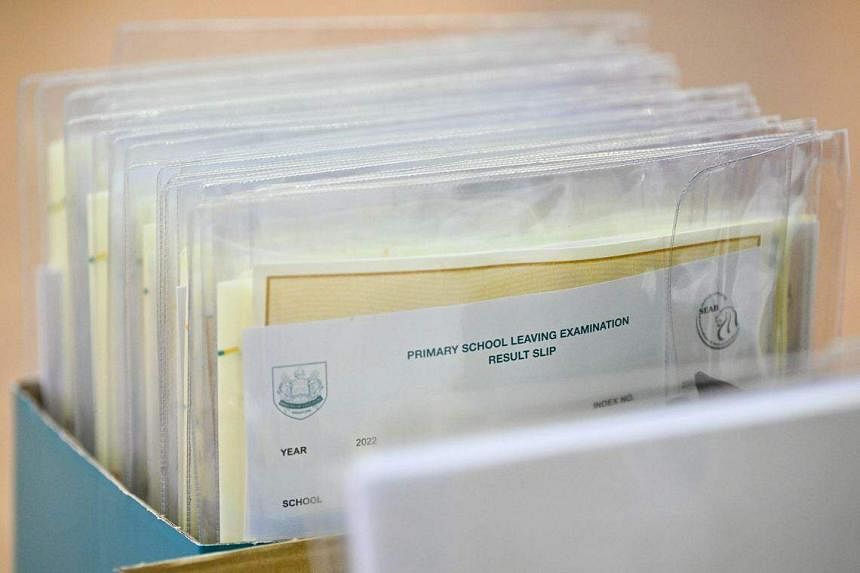SINGAPORE – Allowing students to skip the Primary School Leaving Examination (PSLE) by creating “through-train” schools from primary to secondary levels involves several challenges, even though the Ministry of Education (MOE) is not opposed to the idea in principle, said Education Minister Chan Chun Sing.
Speaking in Parliament on Wednesday during the debate on MOE’s budget, Mr Chan laid out the issues facing such a programme in response to MPs Denise Phua (Jalan Besar GRC) and Jamus Lim (Sengkang GRC) and Non-Constituency MP Hazel Poa, who had asked for the removal of the PSLE to reduce stress for students.
Associate Professor Lim had said on Tuesday that a 10-year through-train programme, from primary to secondary school, could help some students learn at a suitable pace and thus blossom. He raised the issue again on Wednesday.
Ms Phua had urged MOE to seriously study the potential of through-train schools and other alternative models, asking the ministry to be bold and take some calculated risks.
In response, Mr Chan said that while MOE has considered the idea, there are substantive challenges.
First, Singapore would have to decide who gets to attend such schools, said the minister.
He said: “At Primary 1, it is very difficult, if not impossible, to know the abilities or interests of our children.
“If the through-train programme is to a very popular school... I’m sure there would be no shortage of takers for the programme... but what about those who develop a bit later? Does that mean they will not get the chance to go to these schools?”
This would have implications for social mixing, said Mr Chan.
Second, the situation where a student enters such a programme and is later found not suitable for it must be considered.
Third, without an academic checkpoint at Primary 6 or any other level of primary school, it would be difficult to work out which academic setting is right for a student, said Mr Chan.
This leads to a fourth issue, he said, which is that every secondary school in the through-train programme must be able to cater to a diversity of learners.
Then comes “the fifth issue”, he said. “How do we resource these schools with a complete suite of programmes for the students whom we have taken in at Primary 1, with the promise that regardless of their abilities... we will be able to provide them with the full pathways?”
Mr Chan added that MOE is not ideologically closed to good ideas, has considered the idea and is still considering this, but must work out how to “step through” these non-trivial issues systematically.
Other countries with through-train systems face similar issues, he said, and their experiences with it have not been uniformly positive.
He said: “Many have said, remove the PSLE, but let’s get the reasons right... Let’s not do it for the wrong reasons. And let’s not end up with unintended consequences.”


